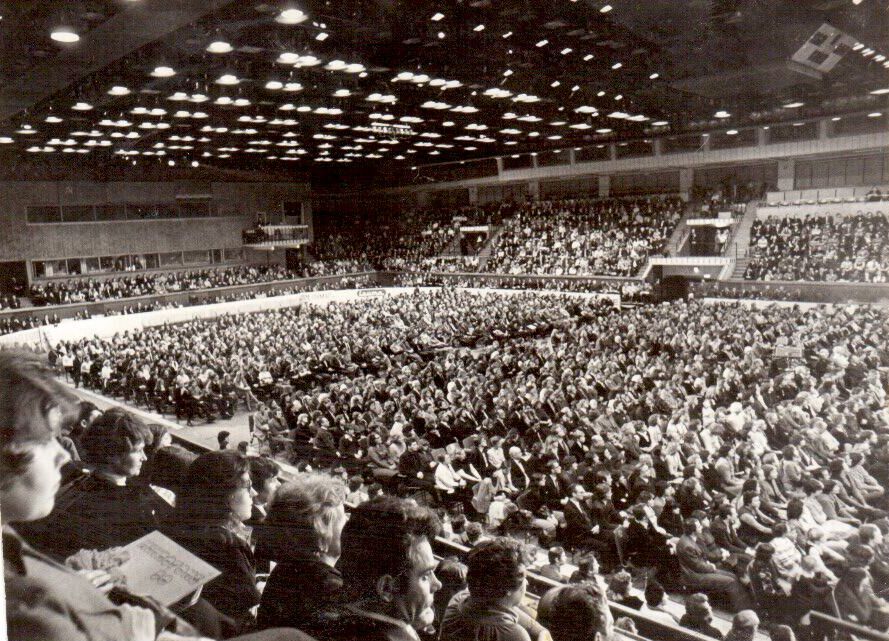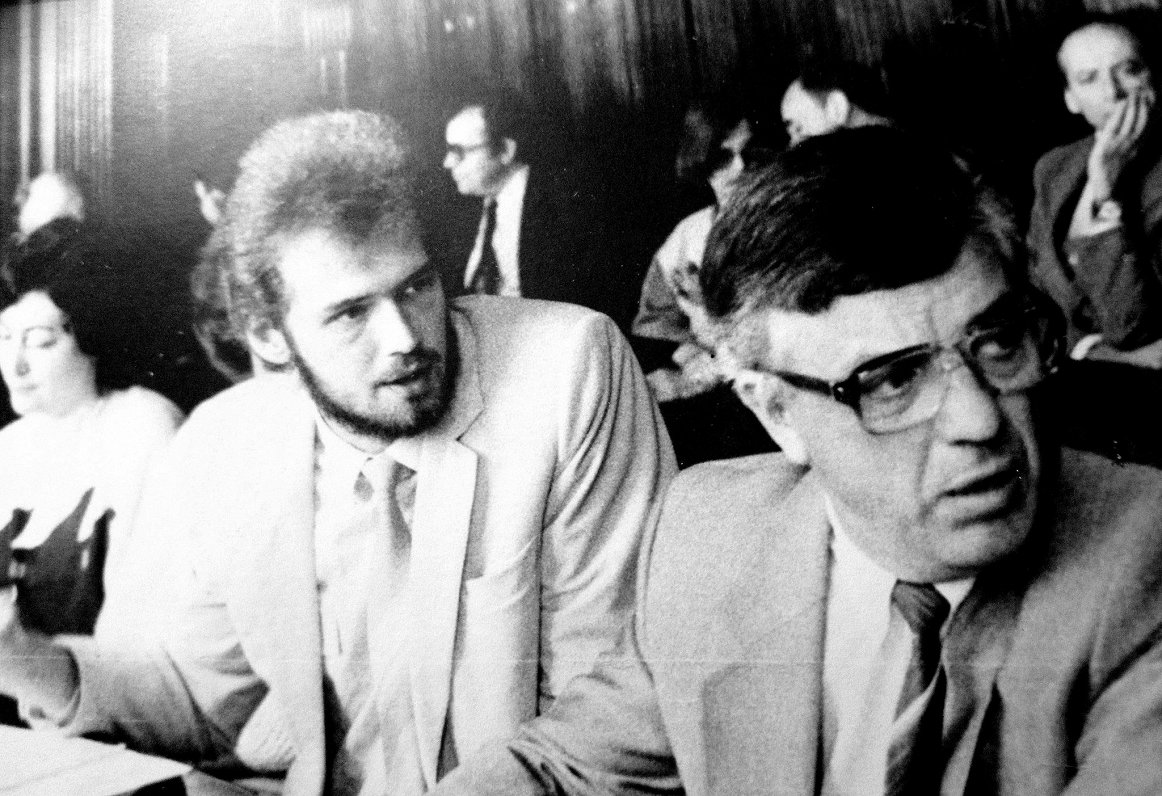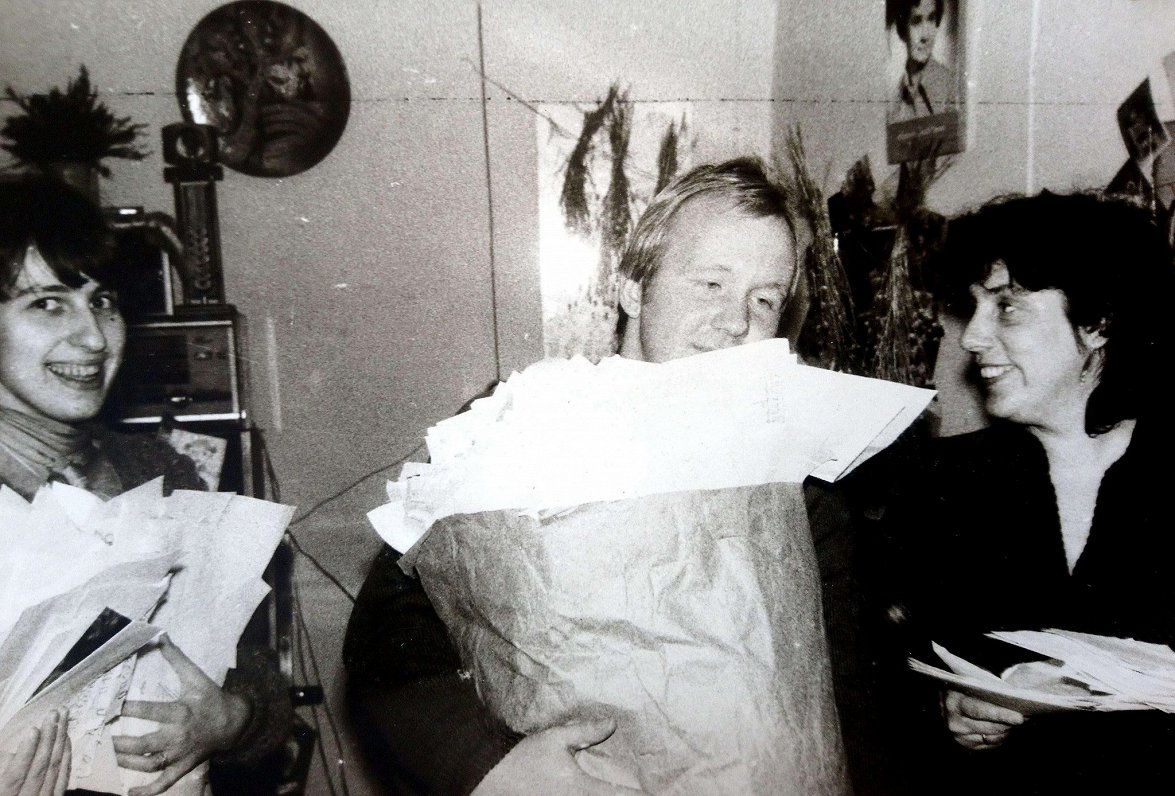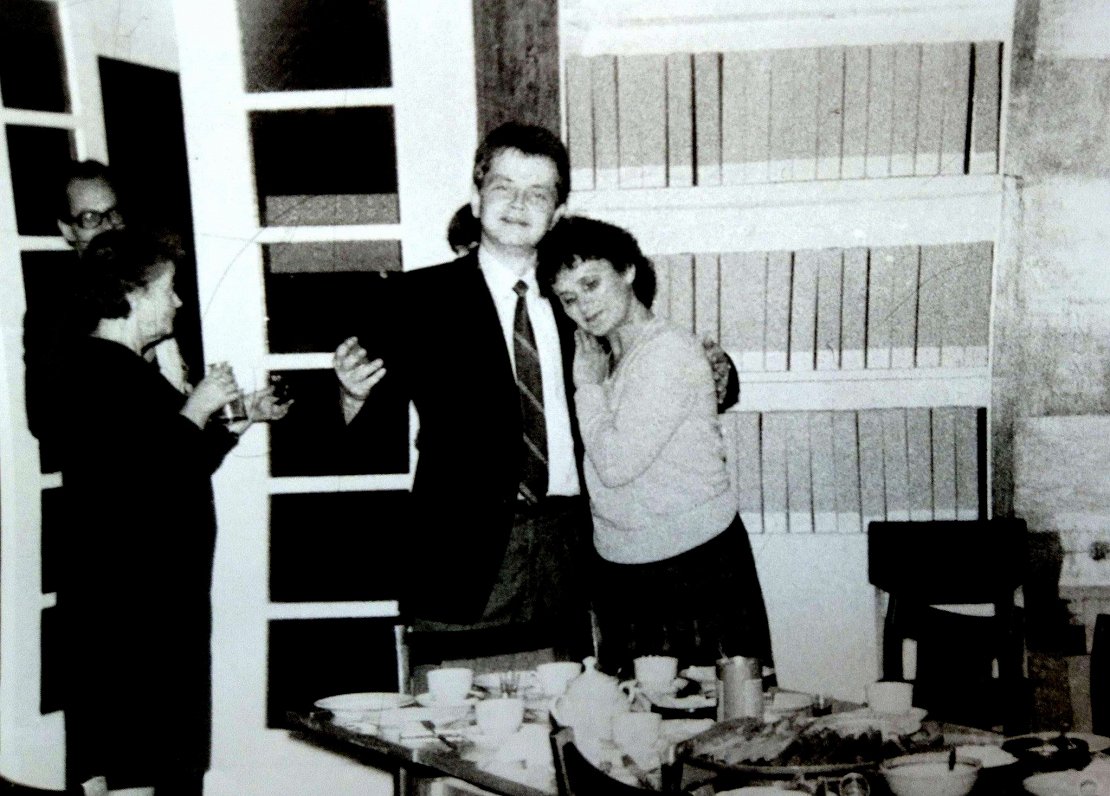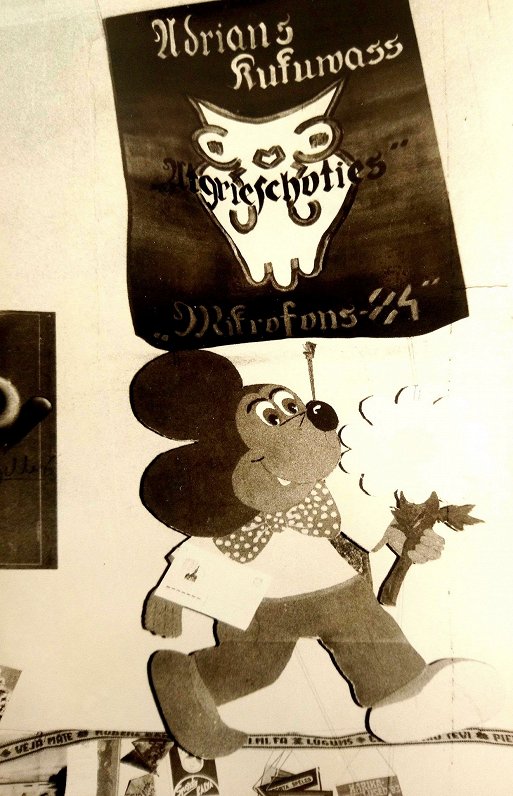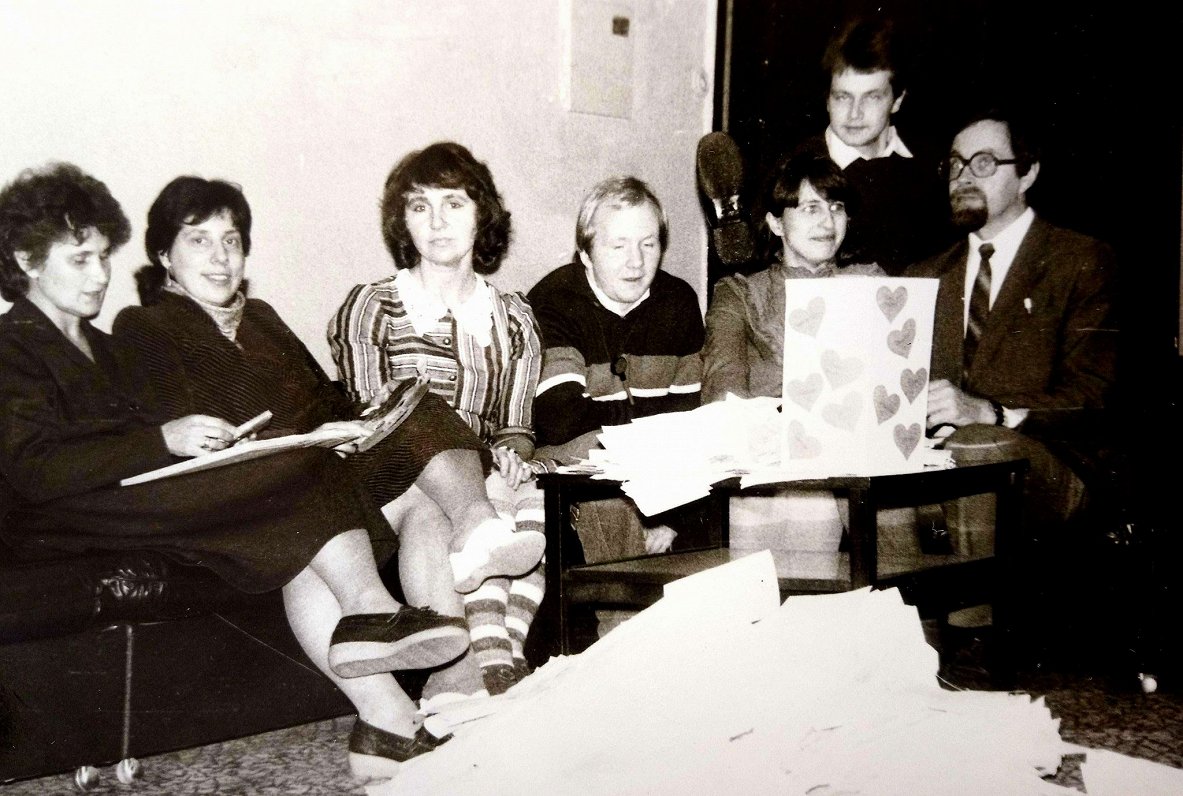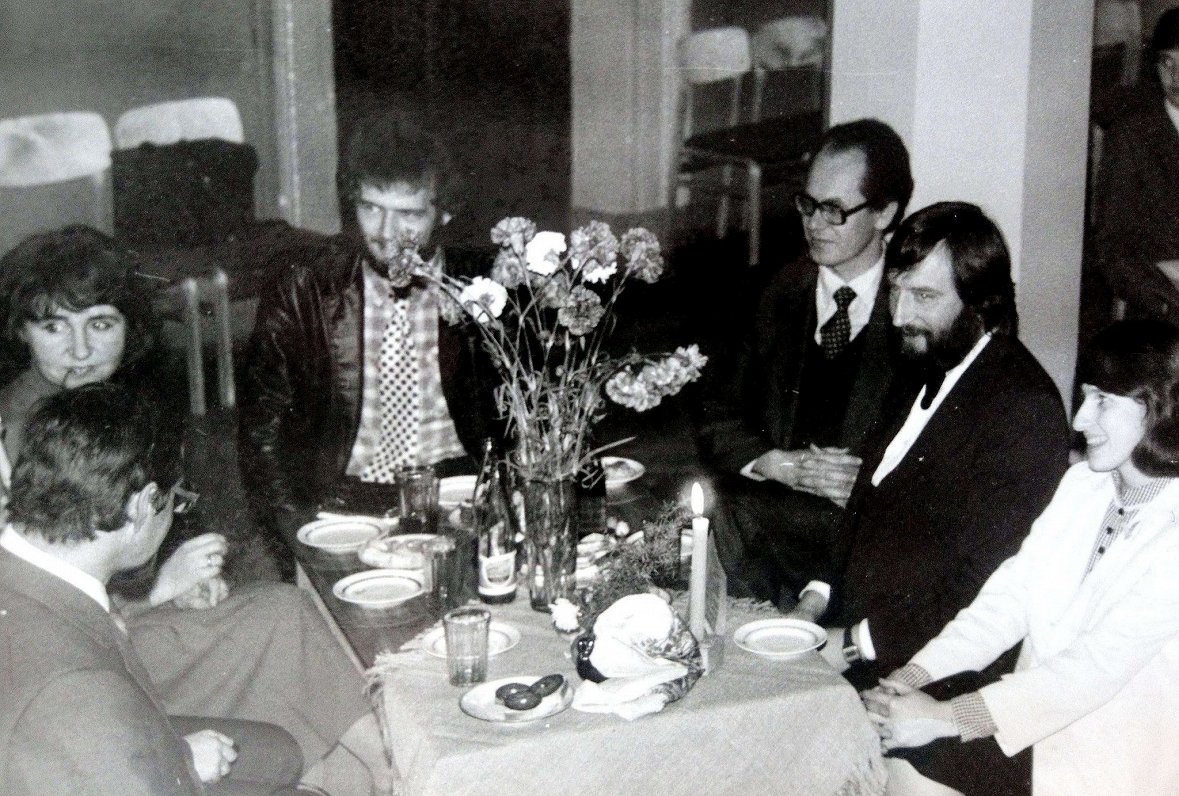The Mikrofona aptauja Latvian song chart, as well as philosophical and social topics discussed under disguise in this entertainment broadcast, reached large audiences and contributed to creating a favorable background for the upcoming National Awakening.
A source of intellectual dissent
By 1985, Mikrofons had been on the air for 20 years as a counter-propaganda tool against the US Department of State's Voice of America programming in Latvian, which, despite radio jamming, remained ever popular.
"Mikrofons was broadcast concurrently with Voice of America. If the broadcast time of Voice of America was changed, that of Mikrofons was changed too," said Kārlis Grīnbergs, chief editor of the Mikrofons program until the mid-1980s. At the time, it was broadcast four times a week, at 7 p.m. Tuesdays, Thursdays, Fridays and Sundays. It was set up as an entertainment program to reach large audiences, but according to Grīnbergs it also discussed publicly important topics and thus contributed to the National Awakening, which culminated in a vote to leave the Soviet Union.
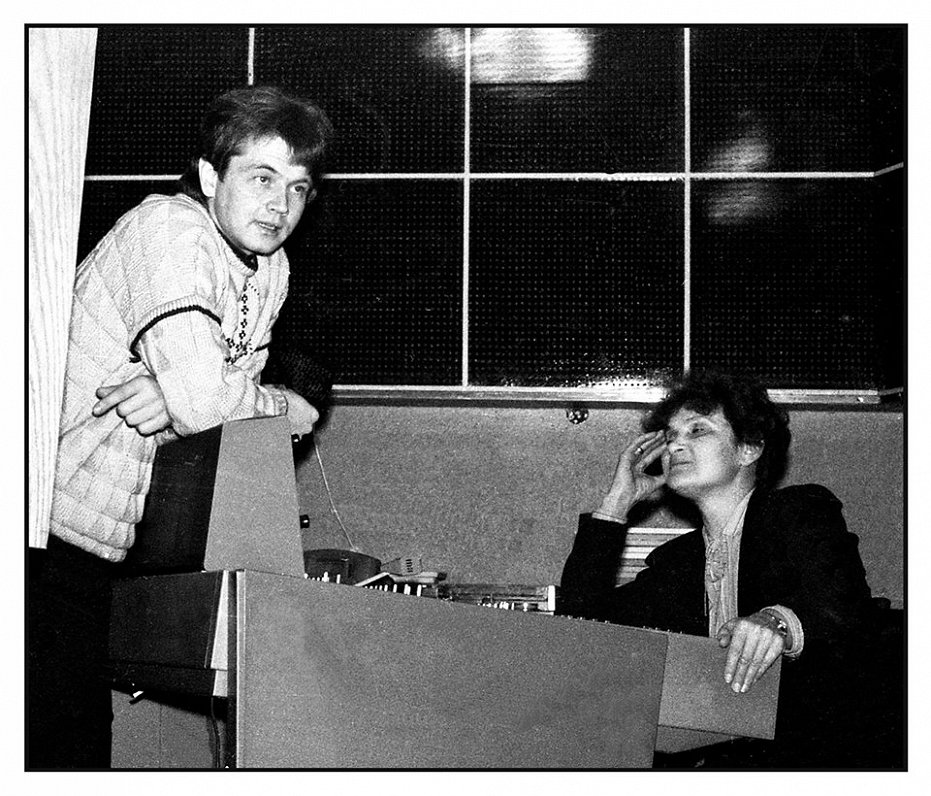
"I would say we did it without really trying. For example, as Ilmārs Latkovskis started working at Mikrofons, the programming became such that it contributed, in a way, to the National Awakening," said Grīnbergs.
"I had a background in philosophy and an approach appropriate to that, maybe coupled with a rebellious attitude of someone who had listened to the Voice of America a lot," said Latkovskis, who worked at Mikrofons from 1983 to 1988. Back then, he and colleagues Kārlis Grīnbergs, Vizma Apolone and Lia Guļevska worked as editors, in charge of the topic and writing studio texts for the hosts.
"I tried doing things that radio maybe shouldn't be doing, and which no-one would listen to today. For example, we had a strand on essays by Michel de Montaigne.
"The essays, of course, refer to a completely different time, but often the problems, in particular sociopolitical problems about rulers, are urgent even today. We read fragments of essays and sometimes added stories in between. Back then, when there wasn't the information overflow and when you didn't have to catch people's attention in two sentences, many people did in fact listen to the broadcast of Mongtaigne's essays. It is difficult today to picture a popular broadcast with philosophical essays," Latkovskis said.
While it was difficult to censor philosophical texts, the censors were ever vigilant.
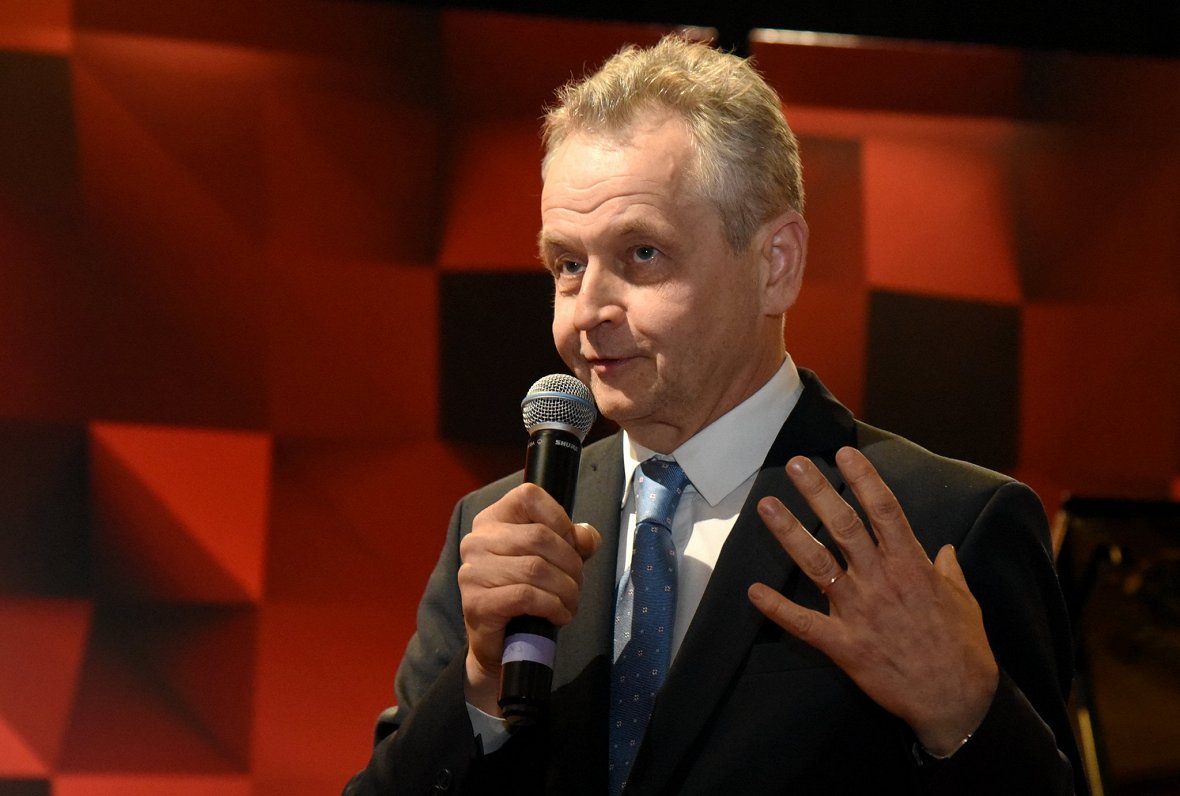
"Colleague Lia Guļevska wanted to start a broadcast saying, 'Today, a westerly wind prevails'. The censor stumbled upon this and said, no way. It didn't get through," said Latkovskis.
One of the most scandalous Mikrofons broadcasts was the March 24, 1988 program on deportations. It had fragments from dissident Lidija Lasmane-Doroņina, a Nobel Peace Prize nominee.
"I don't remember how we managed to get it past the censor, but it was an impressive broadcast. A Communist Party leader found it to be too provocative and the rerun was taken off the air," said Latkovskis. He remembers that angry audiences called the editorial office, asking why there was no rerun.
Latkovskis was eventually fired after he was discovered to have taken part in making the underground magazine Auseklis in 1988.
United by song
Mikrofons was so powerful thanks to its creators, said Gundars Venens, music editor at the company from 1983 to 1988. He stressed that Mikrofons discussed topics that contributed to shaking up the image of the Soviet Union.
"We were very conscious of using an entertainment broadcast to discuss pressing topics," Venens said. For example, Lia Guļevska worked together with Marina Kostanetska, a Russian-Latvian writer who at the time discussed problems at orphanages and boarding houses.
The Mikrofons annual song chart became the image of the entire broadcast. Lia Guļevska told Latvian Radio that it wasn't just about finding out the most popular song.
"It was first and foremost the Latvian nation rallying around something. And this 'something', at that time, was a particular song. [Writers] Zigmunds Skujiņš and Leons Briedis formulated it clearly during the National Awakening: Latvians didn't have to unite in some way and step out of their thatched huts. We were already united, through the Mikrofons chart, through theater and the Song and Dance Festival," said Guļevska.

Meanwhile Kārlis Grīnbergs stressed that that the songs in Latvian were a source of great strength during intensive Russification policies.
"Here you had us holding on to what's national, what's Latvian. Some years, we were forced to add Russian-language songs, but we and our audiences didn't really like it, so we got rid of that," said Grīnbergs.
Censors were aware you could tell more with a song, therefore lyrics were put under particular scrutiny. Broadcast people said that in 1981 it was insinuated strongly that Uldis Stabulnieks' and Māra Zālīte's Tik un tā can't emerge victorious in the chart, while in 1986 there were attempts to prevent Līvi's Dzimtā valoda (Native Language) from winning – to no avail, it should be added.
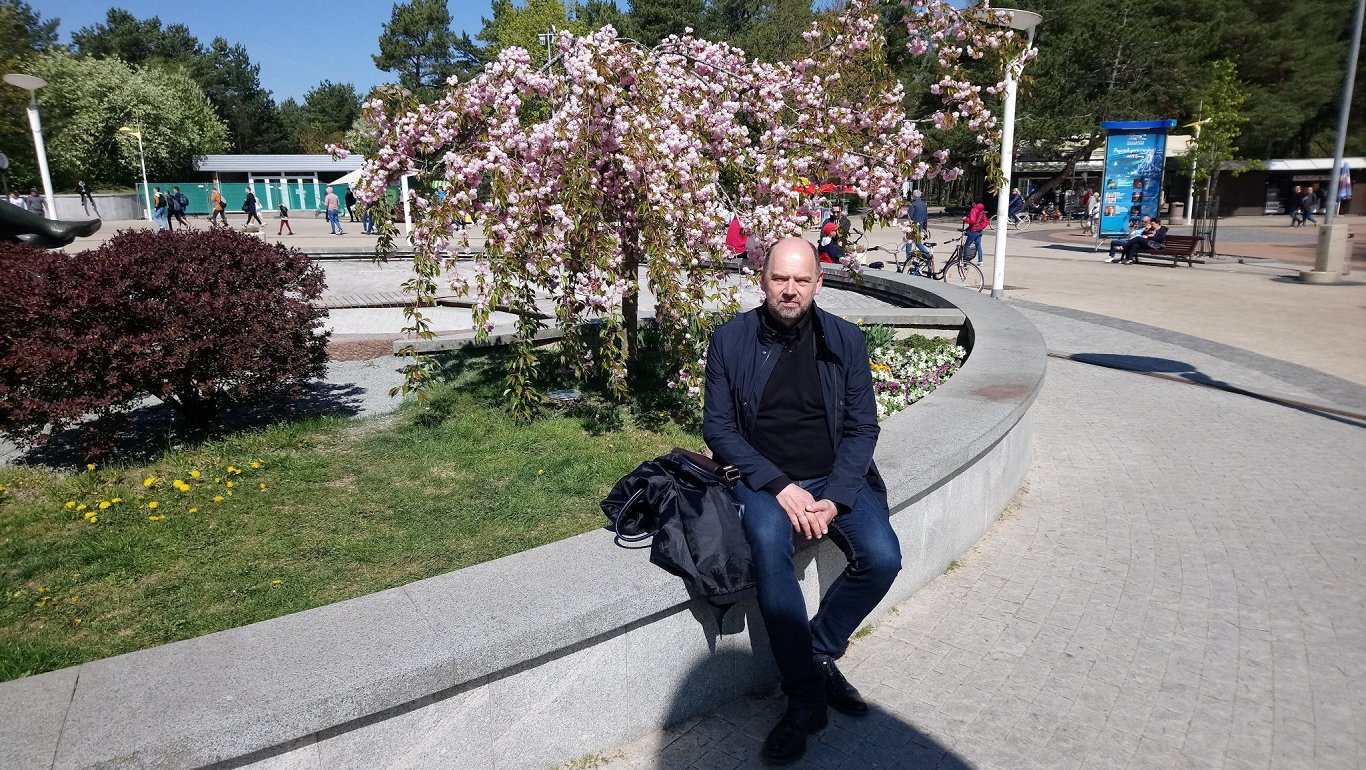
The Mikrofons song chart was a culmination of the lively feeling of presence prevailing throughout the Mikrofons letter broadcasts and trips to visit listeners in Latvia's regions, said Venens. In addition to the accepted music programming, he had some illegal recordings as well hidden in the drawer.
He remembers adding Yoko Ono's Kiss Kiss Kiss as a closing song to one broadcast, and as the censor was distracted with the controversial content of the actual broadcast, the song slipped through the cracks.
Started as a broadcast for 'jamming' the Voice of America, Mikrofons itself went on to contribute to the growing dissent under the communist government.
* The Latvian Radio story was created in cooperation with the Baltic Centre for Media Excellence. Thanks to the National Library of Latvia.
